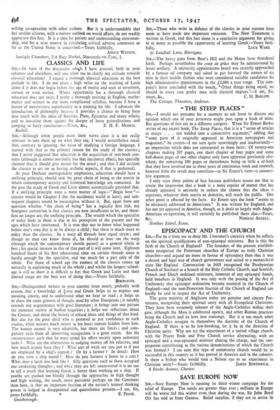BOURGEOIS. Six,—Distinguished writers in your current issue assert, probably with
reason, that a knowledge of Latin and Greek helps us to express our meaning clearly, and to undeAtand what we hear or read ; it helps us to share the same grooves of thought used by other Europeans ; it notably extends our acquaintance with good literature ; it brings into one picture the immense variety of hurrian enquiries ; it helps our reflections about the Creator, and about the history of ethical ideas and things of that kind. But alas for the poor child who is pestered to put confidence in such studies, while matters much nearer to his heart remain hidden from him. The human animal is very adaptable, but there are limits ; and com- pulsory exile from all interesting occupations is a great strain. Are his circumstances such that he must spend his effort mainly upon sedentary tasks ? What are the alternatives to cadging money off his relatives, and how much money have they ? What sort of work are you put to if you ' are employed by a ship's captain ? Or by a farmer ? In detail: How do you turn a ship round ? How do you harness a horse to a cart ? What does a larch tree look like ? Silly questions such as these occupied our awakening thoughts ; and while they are left unanswered it is no use to tell a youth that learning Greek is better than working on a ship. If youths are pushed too blindly through the approaches to high thought and high writing, the result, more prevalent perhaps on the Continent than here, is that an important fraction of the nation's trained thinking power is lodged in disappointed and quarrelsome persons.—I am, Sir,


































 Previous page
Previous page